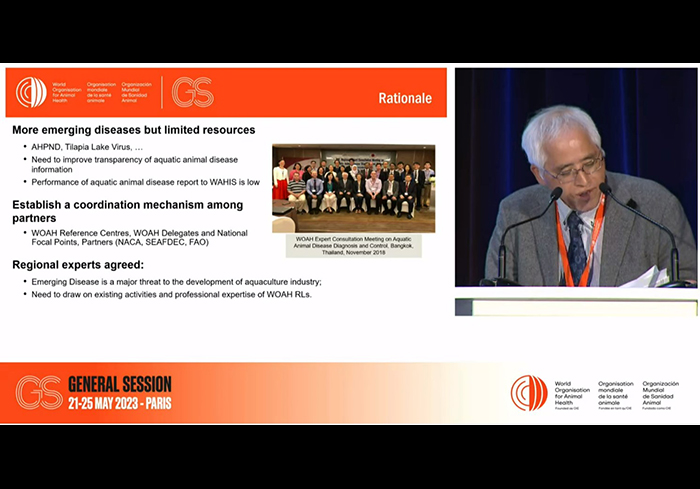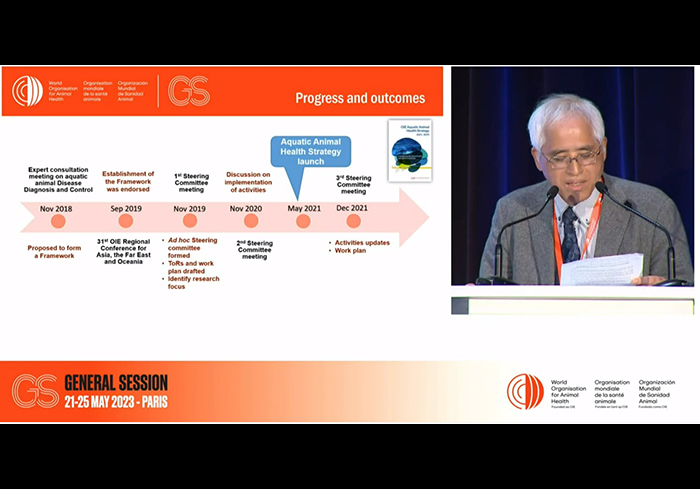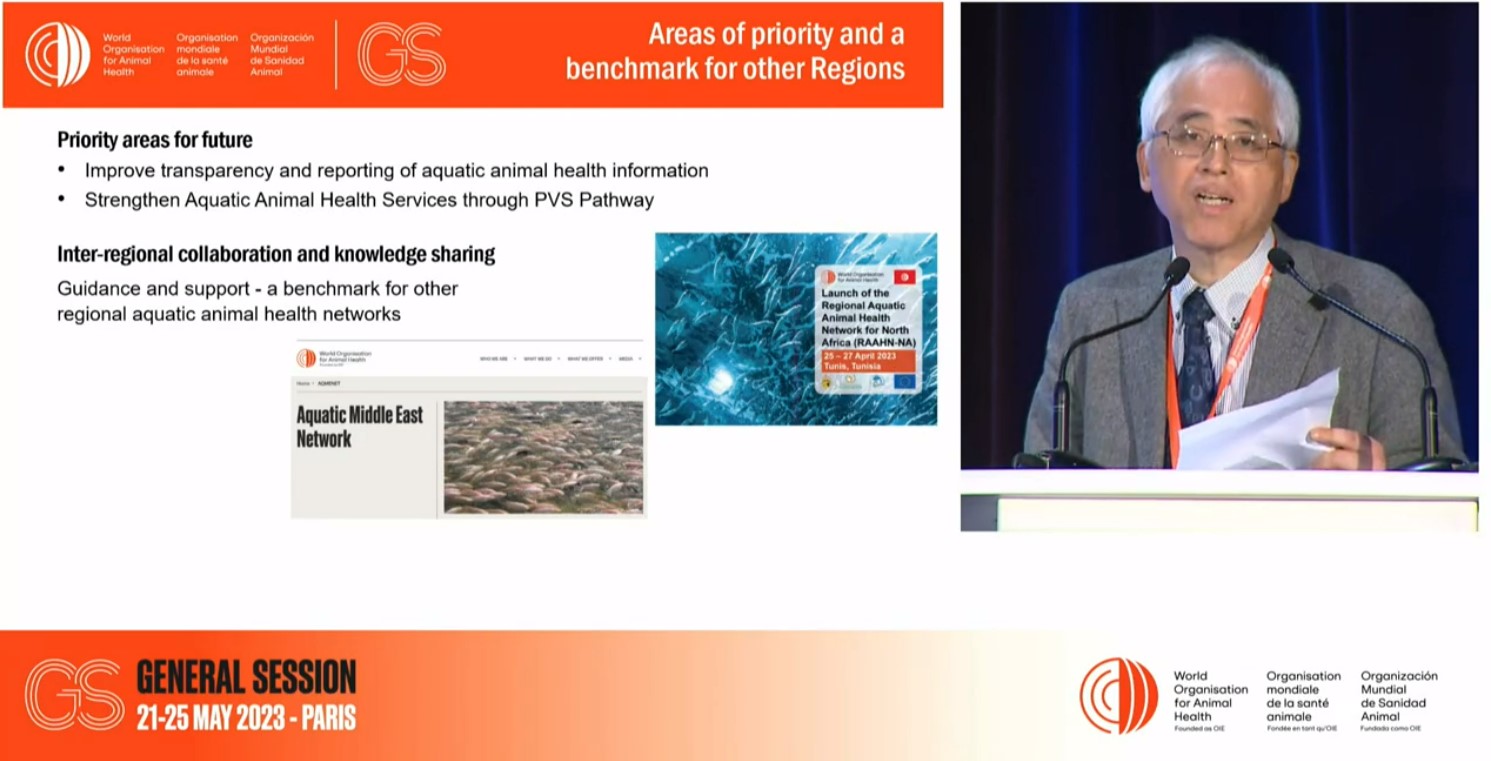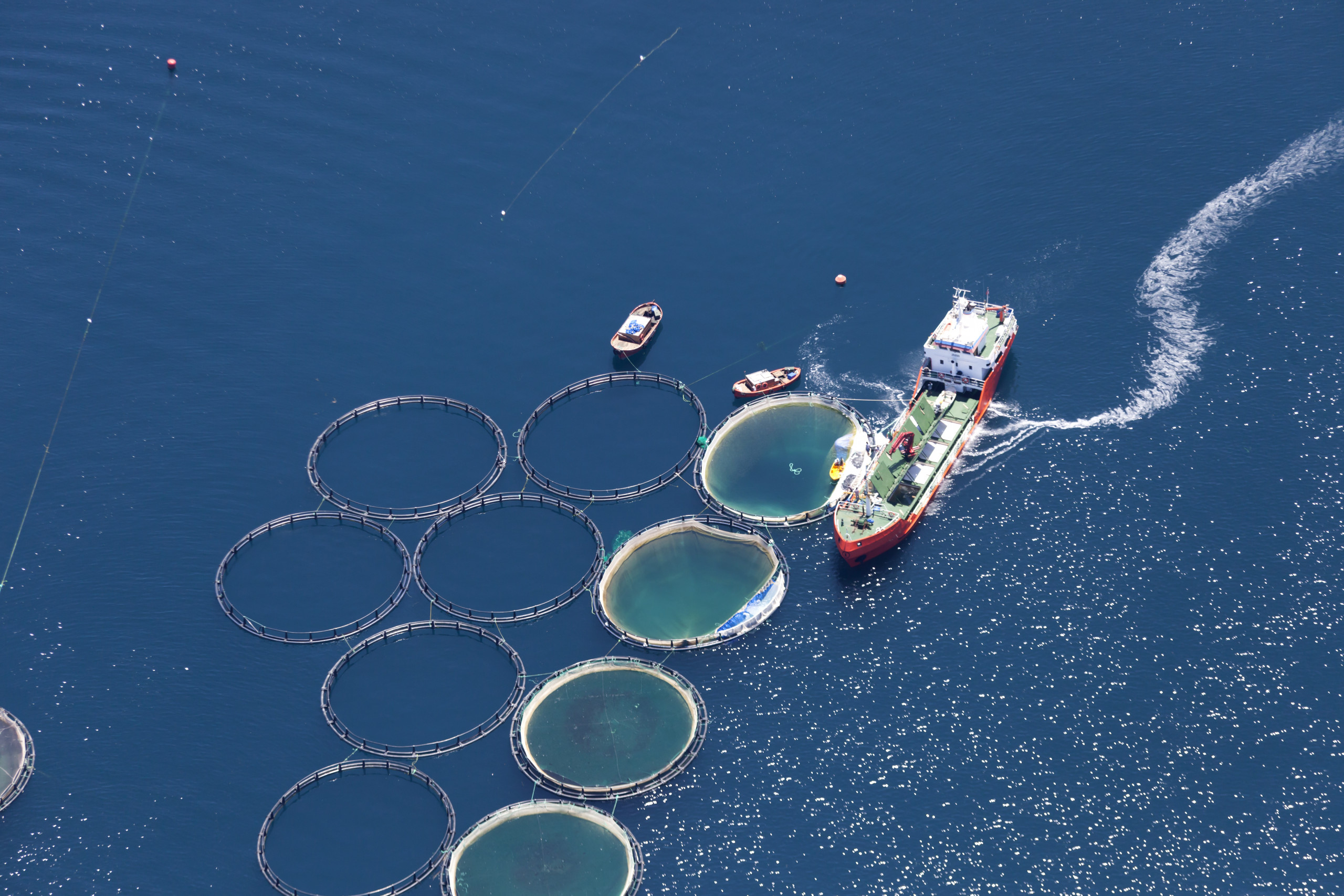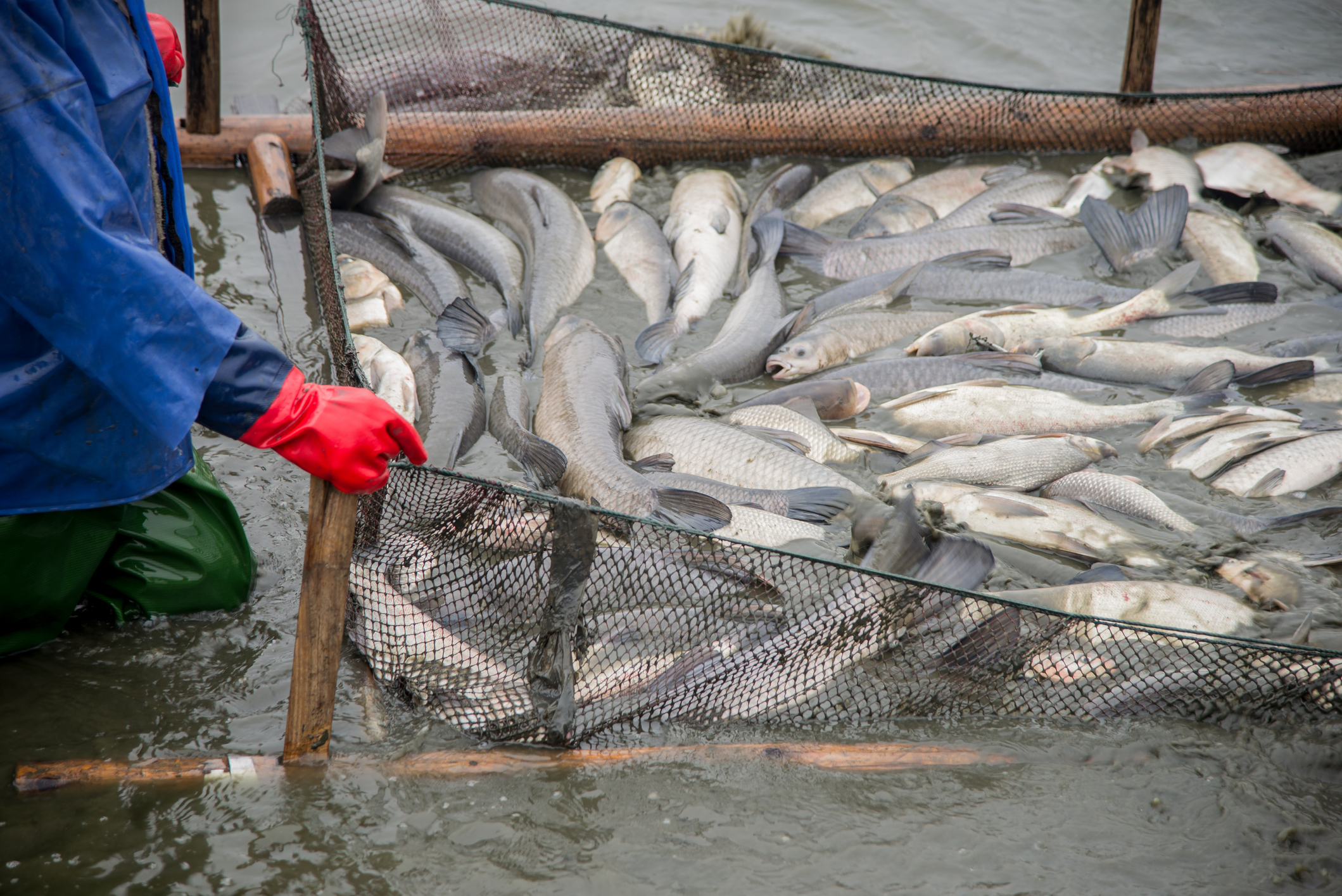
23 May 2023 (France) – At the 90th General Session of the World Assembly of Delegates of the World Organisation for Animal Health (WOAH), the Regional Representation for Asia and the Pacific (RRAP), represented by Dr Hirofumi Kugita, participated in the “Regional Activities Highlight” session of the programme on 23 May 2023, presenting “The Regional Collaboration Framework on Aquatic Animal Health in Asia and the Pacific.”
Dr Kugita presenting at the Regional Highlights of the 90th General Session of WOAH World Assembly of Delegates.
Dr Kugita began by showing that aquaculture – the rearing of aquatic animals or the cultivation of aquatic plants for food – is the fastest-growing food-producing sector in the world, with the Asia and Pacific region dominating the practice, accounting for about 90% of global total production. Dr Kugita explained that with this rapid growth has come significant risks, compounded by increasingly globalised trade in live aquatic animals and their products.
He pointed out that aquatic animal disease outbreaks continue to cause significant losses in aquaculture production throughout the world, adversely impacting the sustainability of aquaculture and the livelihood of stakeholders in related sectors. Outbreaks include emerging diseases such as acute hepatopancreatic necrosis disease (AHPND) and tilapia lake virus (TiLV), which respectively cause high mortality in shrimp and tilapia. Dr Kugita added that resources to deal with such emerging diseases are limited in the region.
continue to cause significant losses in aquaculture production throughout the world, adversely impacting the sustainability of aquaculture and the livelihood of stakeholders in related sectors.
Dr Kugita summarizing activities supporting aquatic animal health in the Asia Pacific, at the Regional Highlights of the 90th General Session of WOAH World Assembly of Delegates.
One of the presentation’s key points is that the region also faces another challenge: low disease reporting for aquatic animals. Other challenges also identified by experts include the need for proficiency testing, test validation, and emergency response mechanisms. To deal with these challenges, WOAH and collaborating organisations proposed the establishment of a regional network.
This idea was endorsed by the Regional Commission for the Far East, Asia and Oceania at its conference in September 2018 in Sendai, Japan, and subsequently, the “Regional Collaboration Framework on Aquatic Animal health for Asia and the Pacific” was formed.
The Framework’s aim is to strengthen laboratory capacity in the region. Objectives include:
Participants in the Framework include WOAH Reference Laboratories and Collaborating Centres in the region (e.g., Commonwealth Scientific and Industrial Research Organisation in Australia, National Cheng Kung University in Chinese Taipei, and the National Institute of Fisheries Sciences or NIFS in the Republic of Korea), members of the WOAH Aquatic Animal Health Standard Commission, National Focal Points for Aquatic Animal Health, and international partners (e.g. , NACA, SEAFDEC, and FAO). Other partners such as universities, research institutions, private sector actors, and donors could also be invited to participate depending on their interests and expertise.
Activities of the Framework chiefly involve:
is to strengthen laboratory capacity in the region. Objectives include strengthening collaboration among WOAH Reference Centres, Members, and international organisations, and sharing information on test validation, reference materials, and positive samples.
Dr Kugita concluded by mentioning that in support of the Framework’s goals, WOAH RRAP is planning a regional training workshop for WOAH National Focal Points for Aquatic Animal Health in June, hosted in Korea (Republic of). He also highlighted that development of the Framework in the region had a positive effect on other regions globally, listing other networks’ formation. These include:
Further details, along with activities, members, and further next steps, can be found via the website: Collaboration on Aquatic Animal Health in Asia and the Pacific
Dr Kugita completing remarks at the Regional Highlights of the 90th General Session of WOAH World Assembly of Delegates.

